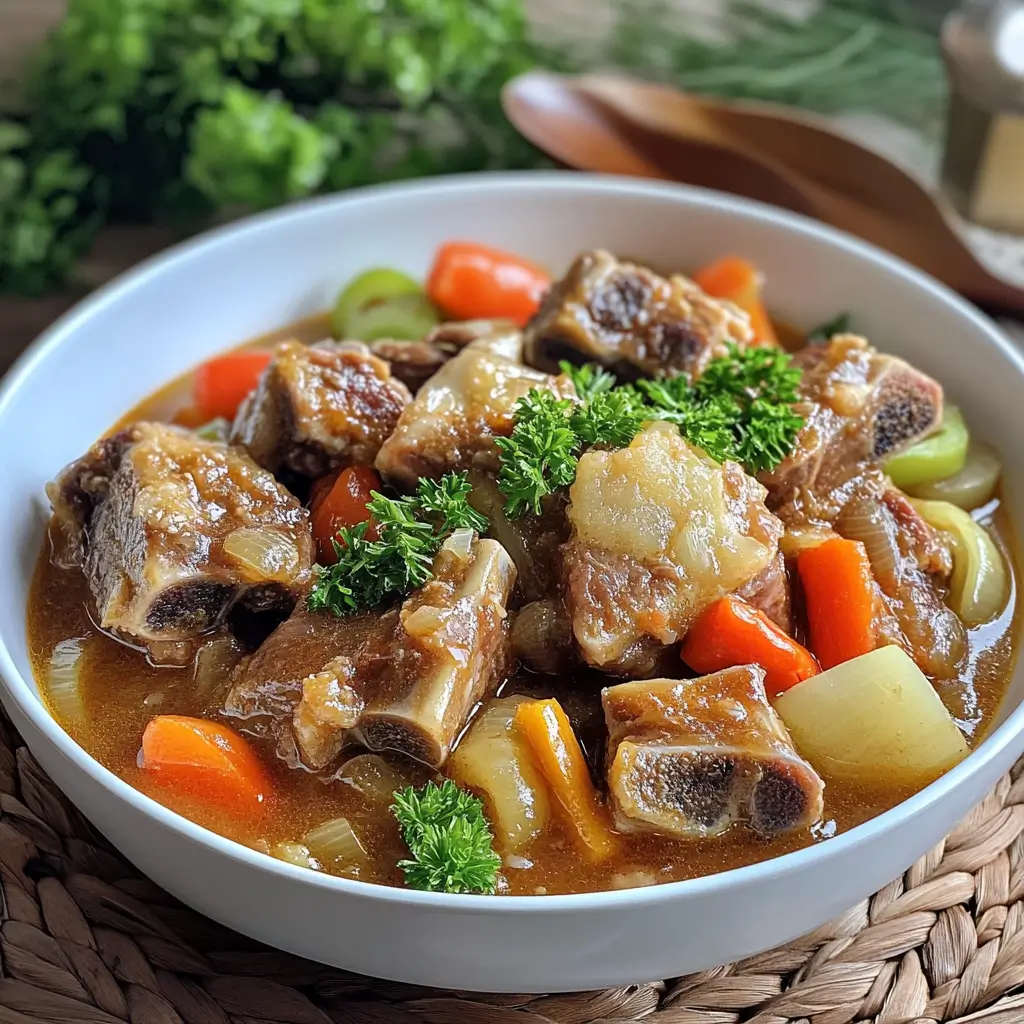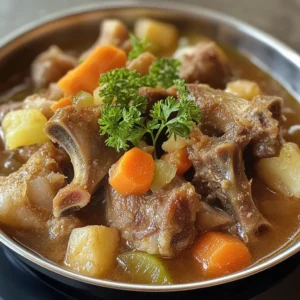Smoked neck bones are a flavorful ingredient used in various dishes, especially in Southern and comfort food recipes. These bones, typically from pork or beef, are smoked to impart a deep, savory flavor. However, a common question that arises is: Do you rinse smoked neck bones before cooking? The answer isn’t always straightforward and often depends on personal preference and the dish you’re preparing.
What Are Smoked Neck Bones?
Before diving into whether or not rinsing is necessary, it’s important to understand what smoked neck bones are. Essentially, they are cuts of meat from the neck area of either pork or beef that have been smoked for preservation and flavor enhancement. The smoking process imparts a distinct smoky flavor while curing the meat with salt and other seasonings. This preparation not only preserves the meat but also intensifies its taste, making the neck bones a perfect addition to hearty dishes like soups, stews, and beans. Their rich, smoky flavor and tender texture, when slow-cooked, add depth and complexity to these dishes.
The Importance of Smoked Neck Bones in Cooking
Smoked neck bones are often a cornerstone of comfort food. They add richness to dishes and are ideal for slow-cooked meals, where their smoky, salty flavors can infuse the entire dish. In some regions, particularly the South, they are commonly used to flavor collard greens, beans, and other traditional dishes. The deep, savory taste they provide is a key element of many beloved comfort foods. However, given their strong flavors, many people wonder if rinsing them before cooking will improve the dish’s taste by reducing some of the saltiness or surface residue. This is a common concern, especially for those looking to balance the richness of the neck bones with other ingredients in the dish.
Rinsing Smoked Neck Bones: Should You Do It?
When it comes to preparing smoked neck bones, the question of whether to rinse them before cooking is highly debated. Some home cooks choose to rinse the neck bones to reduce their saltiness, believing it makes the dish more balanced. Others, however, prefer to leave them as is, allowing the full depth of the smoky flavor to infuse the dish. The decision often depends on personal preference and the specific dish being prepared, as the strong, savory taste of smoked neck bones can vary in intensity depending on how they are handled.
Why Rinsing Smoked Neck Bones Makes Sense
One of the primary reasons people opt to rinse smoked neck bones is to remove some of the salt. The smoking and curing process typically involves a significant amount of salt, and this can sometimes be overwhelming, especially in dishes that already contain other salty ingredients like broth or seasoning. Rinsing the bones under cold water helps reduce the sodium content, making the bones more manageable and allowing for a better balance of flavors in the dish. This can be particularly useful for those who are watching their sodium intake or want to prevent the dish from becoming too salty.
Additionally, rinsing can help remove any excess preservatives that might have been used during the smoking process, particularly in commercially packaged neck bones. These preservatives can contribute to extra sodium or other unwanted flavors that may not be ideal for certain dishes. This step is especially important for those looking to manage their sodium intake or for recipes that don’t require an intensely salty base, allowing the other flavors in the dish to shine through without being overwhelmed by saltiness.
Why You Might Skip the Rinsing Process
On the other hand, many people argue that rinsing smoked neck bones can strip them of their signature smoky flavor. Smoked meats, including neck bones, are prized for their distinct taste, which is developed during the smoking process. Rinsing can dilute this flavor, making it less pronounced in your final dish. If you’re making a dish where the smoky richness is a key component, such as a smoked meat stew or soup, skipping the rinse might be the better choice to preserve that deep, savory taste.
Furthermore, the smoking process often helps tenderize the meat, and some argue that rinsing the bones can affect their texture. Rinsing might also wash away some of the flavorful fats and collagen that have melted into the meat during smoking, contributing to a richer, more complex flavor. Therefore, if you want to keep the full impact of the smoky richness and maintain the texture of the meat, avoiding a rinse may be preferable.
How to Rinse Smoked Neck Bones Properly
If you decide to rinse smoked neck bones before cooking, there are some best practices to ensure you’re not compromising their flavor and quality. First, use cold water to rinse the bones gently, as hot water can begin to cook the meat and alter its texture. Rinse for only 1-2 minutes to remove excess salt and surface residue without washing away too much of the smoky flavor. If needed, rub the bones lightly to remove any salt crust, but avoid scrubbing too harshly, as this can strip away the flavor. Lastly, after rinsing, make sure to drain the bones thoroughly to prevent excess water from diluting the dish and to preserve the integrity of the flavors.
Step-by-Step Guide to Rinsing Smoked Neck Bones
- Place the Neck Bones in a Colander: Start by placing the smoked neck bones in a colander or strainer to allow for easy rinsing. This will help remove any surface residue and excess salt, while also ensuring that any excess water drains away from the meat. Gently rinse the bones under cold running water for 1-2 minutes to avoid diluting the smoky flavor too much. This quick rinse will clean the bones without compromising their rich, savory taste.
- Rinse Under Cold Water: Run cold water over the bones for 1-2 minutes. The cold water helps wash away excess salt and impurities without cooking the meat or affecting its texture. This quick rinse ensures that the bones are cleaner while preserving their rich, smoky flavor for your dish. By doing this, you can reduce excess salt without compromising the depth of flavor that makes smoked neck bones so delicious.
- Rub Gently to Remove Salt: If needed, gently rub the surface of the bones to remove any visible salt crust or residue. However, avoid scrubbing too harshly, as this can affect the texture of the meat and may strip away some of the smoky flavor. A light touch is enough to clean the bones without compromising their quality, allowing you to retain the rich, savory taste while removing excess salt.
- Optional Soaking: For bones that are particularly salty, you can soak them in cold water for 15-30 minutes to further reduce the sodium content before cooking. This soaking process helps draw out some of the excess salt, making the final dish more balanced in flavor. After soaking, be sure to drain the bones and pat them dry before adding them to your recipe. This ensures the dish isn’t diluted with excess water while still maintaining the smoky richness of the bones.
When Not to Rinse Smoked Neck Bones
While rinsing smoked neck bones may be helpful in some cases, there are also times when it’s better not to rinse them. If the flavor of the smoked meat is essential to your dish, rinsing may not be necessary and could even dilute the taste. For example, if you’re making a rich, hearty stew or soup where the goal is to enhance the flavor with the smoky, salty notes from the meat, you should leave the neck bones unwashed.
Cooking Methods That Don’t Require Rinsing
If you’re preparing smoked neck bones for slow cooking, pressure cooking, or braising, the saltiness may dissipate into the cooking liquid, which helps flavor the dish without the need for rinsing. In these cases, the natural flavors of the smoked meat are integral to the recipe, and rinsing could remove too much of that rich, smoky essence. Allowing the bones to cook in their own juices ensures that the dish absorbs all of the depth and complexity that the smoked neck bones provide.
Alternatives to Rinsing Smoked Neck Bones
If you want to avoid rinsing smoked neck bones but still reduce the salt content, there are other methods you can try. One option is to soak the neck bones in cold water for a short period, which can help draw out some of the excess salt. Another method is to parboil the neck bones by briefly boiling them, then discarding the water before continuing with your recipe. Both techniques can help lower the salt level without compromising the flavor.
Soaking Smoked Neck Bones
Instead of rinsing, you can soak smoked neck bones in cold water for 15-30 minutes before cooking. This method allows the salt to leach out gradually without removing too much of the smoky flavor. It’s particularly useful for bones that are very salty or have a heavy brine, as it helps reduce the sodium content while preserving the rich, savory taste of the meat. Just be sure to drain and pat the bones dry before adding them to your recipe to avoid excess water in your dish.
Cooking with Low-Sodium Broth
Another option is to use a low-sodium or unsalted broth when cooking the smoked neck bones. This helps balance the overall flavor without requiring any rinsing. As the neck bones cook, the broth will absorb their smoky essence, resulting in a tasty, well-rounded dish. This approach allows you to control the saltiness of the dish while still benefiting from the rich, savory flavor of the smoked meat.
Frequently Asked Questions (FAQs)
Do you always rinse smoked neck bones before cooking?
No, whether to rinse smoked neck bones depends on the dish you’re preparing and how salty you want the meat to be. It’s a personal preference. Some people prefer to rinse to reduce the saltiness, while others choose to leave the bones as they are to maintain the full depth of the smoky flavor. It ultimately depends on the balance of flavors you want in your dish.
What happens if you don’t rinse smoked neck bones?
If you don’t rinse them, the smoky flavor and saltiness will be more intense. This can be great for certain dishes, where the rich, savory taste is a key component, but it may overwhelm other recipes that require a more subtle flavor. It all depends on how bold you want the neck bones to be in your dish.
How do you remove excess salt from smoked neck bones?
You can either rinse the neck bones under cold water or soak them in water for 15-30 minutes to remove some of the salt. Both methods help reduce the sodium content, with soaking allowing the salt to leach out more gradually, while rinsing removes surface salt quickly. Choose the method that best fits your recipe and desired saltiness level.
Can rinsing smoked neck bones affect their taste?
Yes, rinsing can reduce the depth of the smoky flavor, which may not be desirable in all dishes. If the smoky richness is a key part of the recipe, rinsing could dilute it, making the flavor less pronounced. In those cases, it’s better to leave the neck bones unwashed to preserve the full intensity of the smoke.
Is it better to soak smoked neck bones instead of rinsing?
Soaking can be an alternative to rinsing, as it removes some salt without compromising the flavor. It’s ideal if you want to reduce sodium but still retain the smoky taste. Soaking the neck bones for 15-30 minutes helps draw out excess salt while preserving the richness of the smoke, making it a great option for balancing the dish’s overall flavor.
How do you cook smoked neck bones without rinsing?
You can cook smoked neck bones directly in stews, soups, or braises without rinsing. The slow cooking process will help distribute the smoky, salty flavors evenly throughout the dish, enriching the broth and infusing the meat with the surrounding ingredients. This method allows the bones to impart their full flavor to the dish, which can be ideal if you want a richer, more intense taste.
Conclusion
Ultimately, the decision to rinse smoked neck bones before cooking depends on the recipe and your taste preferences. Rinsing can help reduce the saltiness, but it may also dilute the signature smoky flavor. By understanding the impact of rinsing, you can make an informed choice and ensure your dish turns out exactly how you want it. Whether you rinse, soak, or cook them as is, smoked neck bones can be a delicious and versatile ingredient that elevates many dishes.
Related article:
Should You Wash Bones Before Cooking?
How to Clean Neckbones Before Cooking?
Perfect Roast Beef Sliders Recipe for Every Occasion



